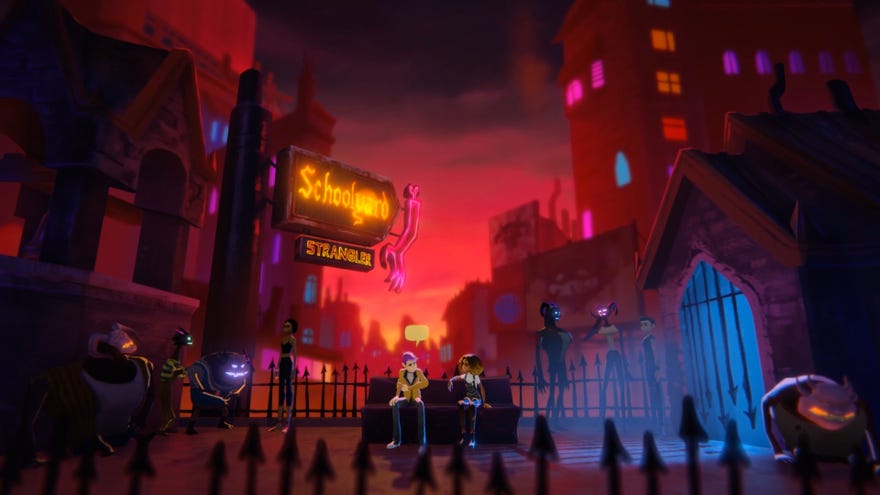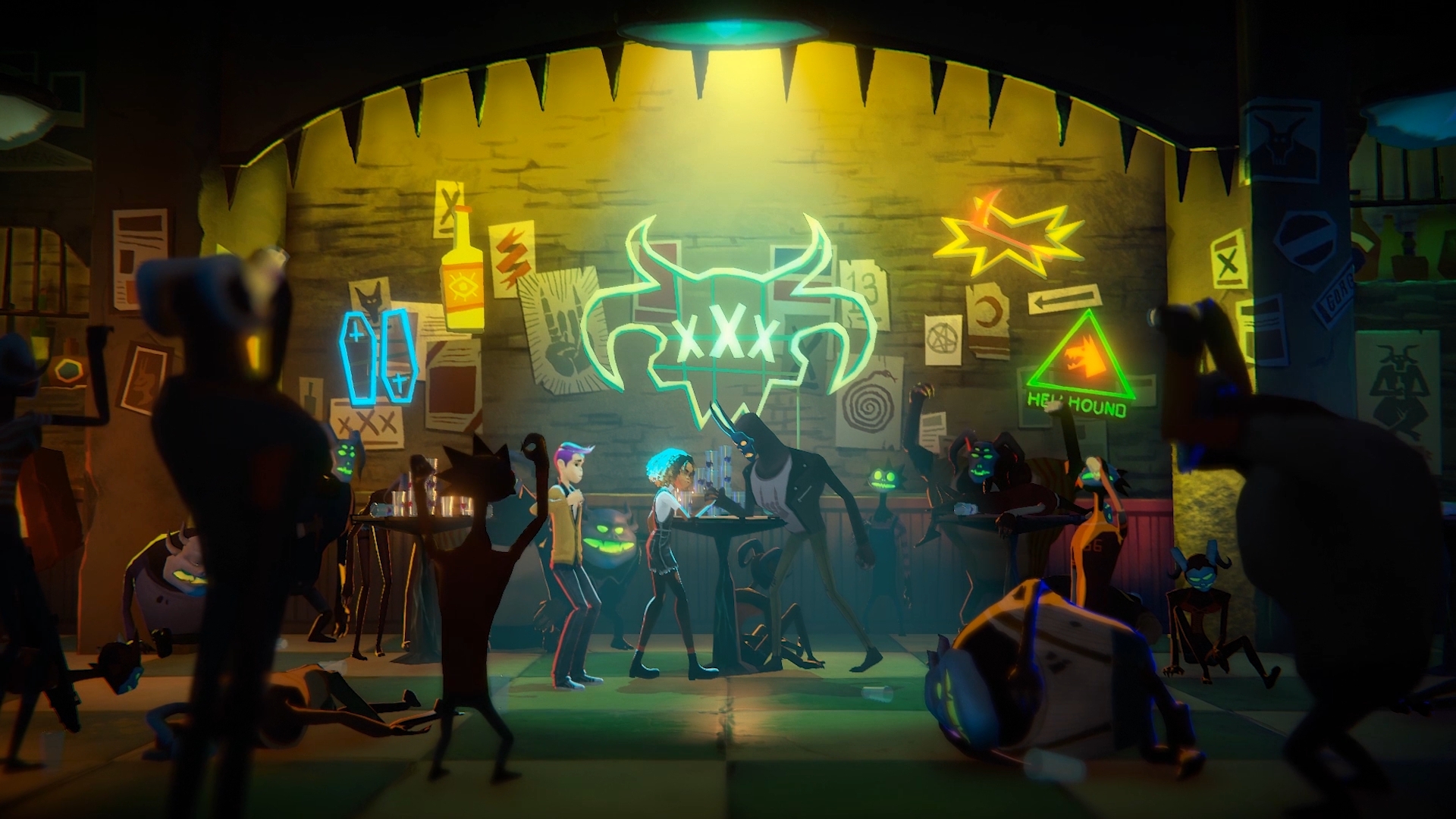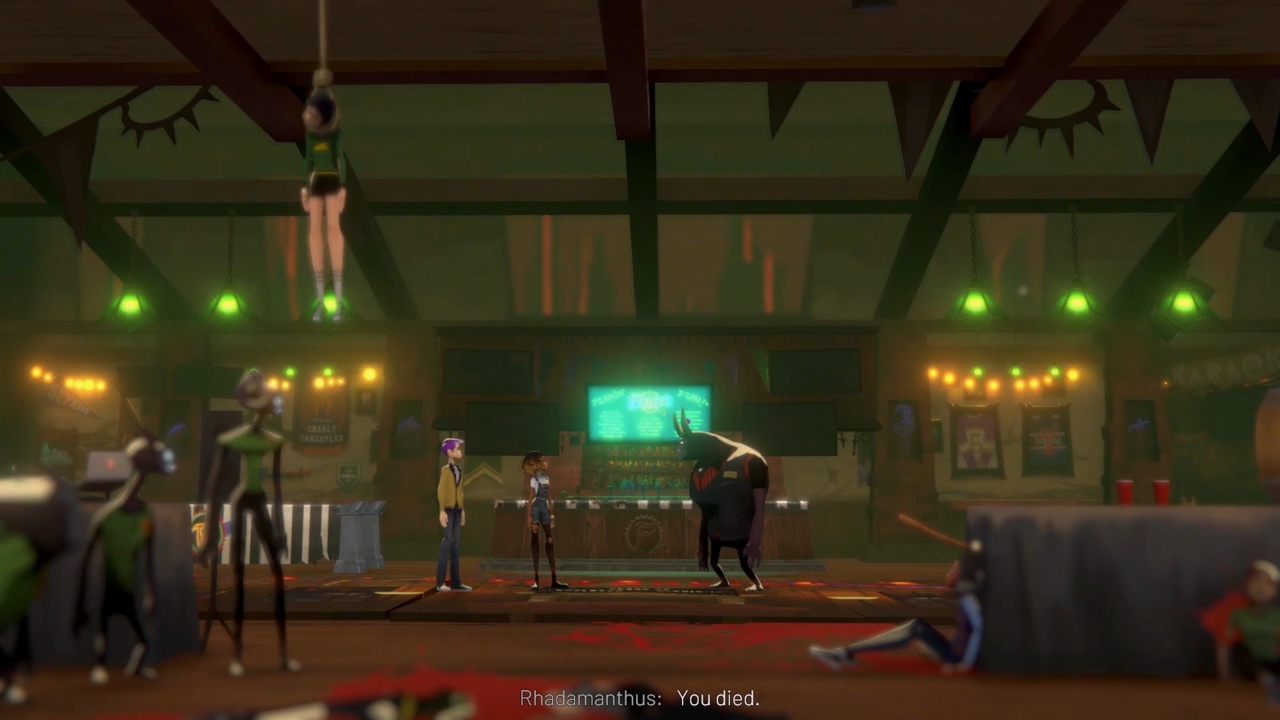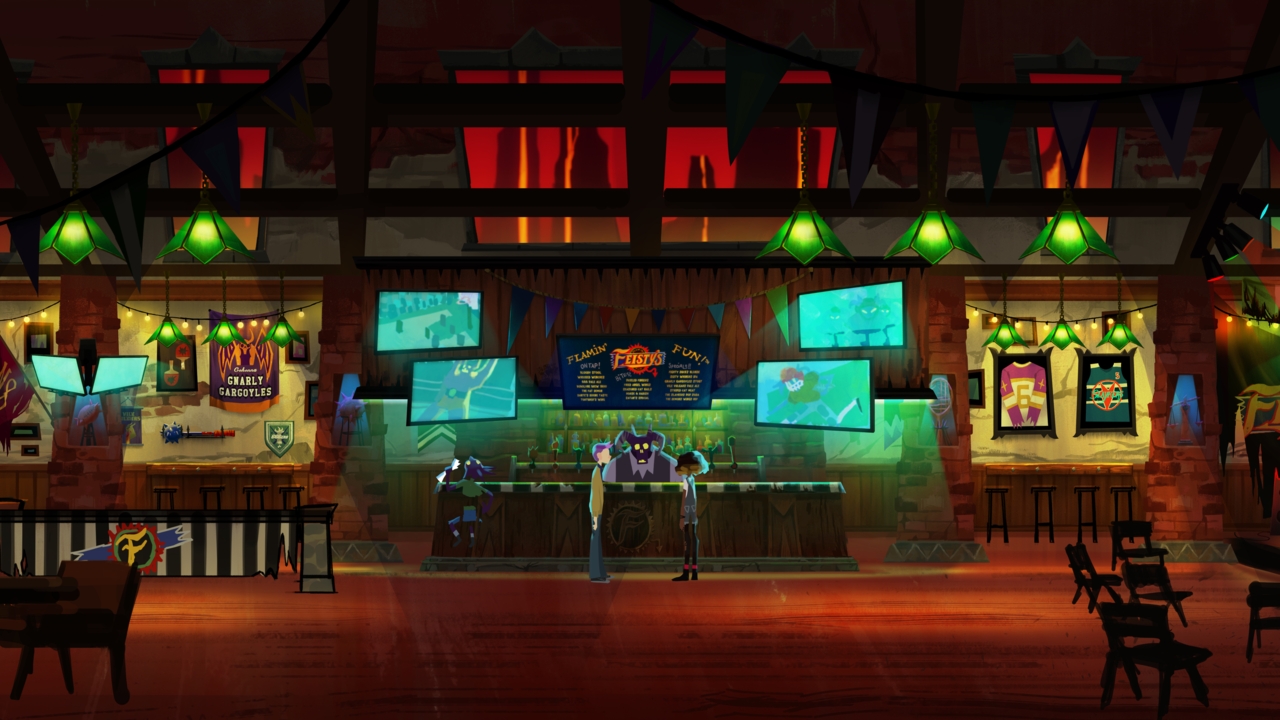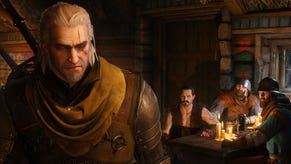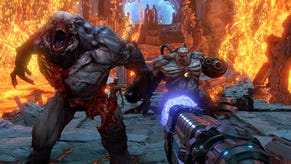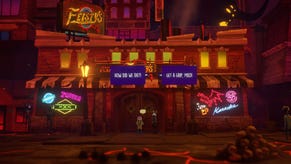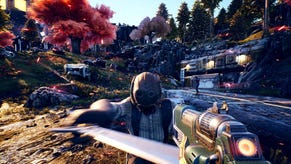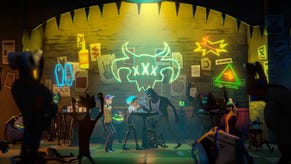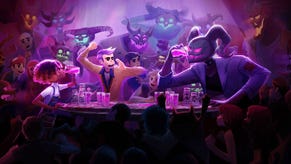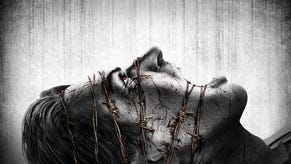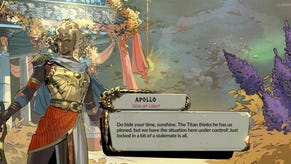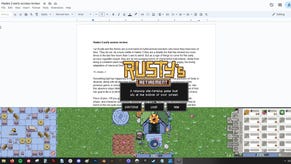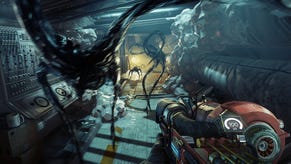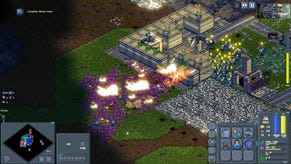Afterparty Hands On: Out-drinking Satan in hell
Toasty
If you asked me to tell you one game I think you should play from the last couple of years, I'd barely hesitate before suggesting Oxenfree. It is an exceptionally good game, focused on a mysterious tale told through an exquisitely good dialogue system. Night School Studio's follow-up Afterparty is attempting to take it all one step further. A pub crawl in hell, where booze is your special power.
In Afterparty, you can vomit up your conscience, and watch it run away. It's a neat way of ensuring all your dialogue choices are awful. It's one of many ways that drinking can affect your characters, as you spend one heck of a night in hell, on a mission to out-drink Satan.
You control two characters, Lola and Milo, who after dying are pretty surprised to find themselves in the Bad Place, and determine to get out of there. It seems the only way to do this is to drink Satan under the table, which is clearly no mean feat. So guided by a friendly-ish taxi driver, Sam (Ashly Burch), they explore the local nightlife, where it seems the denizens of the underworld take time off torturing and being tortured to put a good few away.
Sitting down to play about half an hour of the game, two things were immediately apparent:
1) This is definitely a Night School game. The art style is very familiar, despite a smooth transition from 2D to 3D for Afterparty. But more distinct are the same familiar speech bubbles we saw in Oxenfree, letting you choose your responses within its fractally branching dialogue system.
2) This definitely isn't Oxenfree. It's a very different story, in a very different place, with a very different attitude.
Oxenfree was a coming-of-age tale set in a dark mystery, part of the mid-2010s vibe of spooky podcasts and Stranger Things. Afterparty is a booze-soaked coming-of-death tale set in a bizarre depiction of hell, evoking the spirit of Bill & Ted and Monkey Island.
The key element here is the alcohol. In hell, drinks are free. And mood altering. As with Oxenfree you have three speech bubbles to choose from at any point in dialogue, but this time if you quaff a drink one of them will change to match the mood of the booze. Night School co-founder Sean Krankel explained it to me thus:
"If you want to go be more aggressive in a certain setting, then go get the aggressive drink and that dialogue choice will always reflect that emotional tone. Or if you want to be more flirty, or if you want to be really funny, or if you want to vomit your conscience up and then that literally is a character that runs away, and then your dialogue choices are all awful."
Drinks are available at bars, and bars are plentiful in the Abyss. In one I visited during my sit down with the game, I found my two characters dragged into a game of beer pong, where success meant access to an invite-only party going on upstairs, hosted by a character I needed to talk to. And while my phenomenal aiming skills were all my own, the severity of the harsh bants I was able to lay down on my opponent were strongly improved by the confidence-giving liquor I was knocking back throughout.
Implementing the drink into the game wasn't so straightforward, it seems. Krankel told me they had a few false starts. "Drinking is our primary verb for this game," he explained. "It took us a while to find the right tone. Initially we prototyped a Piss Meter. There was a thing where you could black out, get thrown out of the bar and have to walk back like a Dark Souls thing. There was risk-reward over whether the drink type was too crazy, would you get punched in the face... And we were like, ‘None of that is fun! That just sounds stressful!’ So it took a long time to rein that in, and we’ve found what we think is a perfect version of drinking for the game now."
It wasn't the only early struggle. For quite a while the game just wasn't coming together artistically, either. "The whole game is all 3D assets," continued Krankel. "But we initially the way we were building and lighting it, we got about a third of the way into the game and thought, ‘Holy shit, we’re not going to finish this game. At all.’ And it didn’t look good! The amount of effort we were putting into a scene, to try to get it to look like the concept art when we couldn’t get it anywhere near, was terrifying. So we had to do a big kind of Jesus Meeting, and burn the game down, and start over." And this time it worked. They involved the concept artists in production, having the same people translate their designs into the game proper, and the result is something that looks as lovingly crafted as Oxenfree, but with a lot more depth.
What I couldn't get an impression of in my short hands-on was that instead of a progressive narrative, in Afterparty you're free to explore hell in your own order. Which introduces perhaps the most surprising element: you can entirely miss out on sections of the game while experiencing others. You might be in one bar playing through one branch of the story, while another is playing out elsewhere. "If there’s something cool going on in one bar at 10pm," says Krankel, "and another thing is going on at 10pm in another bar, you’re just going to miss it."
Yikes! That always unnerves me. What if I'm missing the cooler bit?! But it seems Night School became pretty determined this was the right way to go. "Early on we were looking at, what is going to be the ethos," Krankel told me. "Is it that we want everybody to see everything, or is it that we want to give people the impression that they are missing out on a lot, like in real life? We leaned heavily into the latter."
This ethos extends into the dialogue, too. While in Oxenfree what you chose to say could heavily influence how you experienced a scene, it didn't really change the story you were told. Afterparty's script is apparently three times larger than Oxenfree's, which itself was already 1,800 pages long. This is mostly due to the vast amount of extra dialogue the extra drinks introduce, with each conversation written for each possible drink in the game. Which means an awful lot of the dialogue will only be discoverable via multiple play-throughs.
"That was a tough choice that the team all battled over for a while," says Krankel, when I suggest it must be galling to write so much that most players will never see. "I think most games would say, ‘No, you can do everything, one hundred percent it, and then walk through the final door to beat the game.’ This is much more of a, ‘You’re getting dragged into a stream of crazy partying and a pub crawl, and we want you to miss stuff.’ And I think that was also part of the design decision. In Oxenfree you could just affect the story based on dialogue. In this you affect it by physicality, based on where you are, based on how you play a game."
And crikey, I think I'm going to want to go back for those replays, based on the quality of the writing I saw. As well as, crucially, the voice acting. They've got Ashly Burch, as I mentioned, and also Dave Fennoy as Satan, and Janina Gavankar as Lola. I couldn't identify any other names as I played, but felt sure I recognised some of the Oxenfree gang in there too - but more importantly was once again just swept away by how natural and convincing everyone sounds. I wanted to know how they do that, how it is that Night School is able to get such incredible performances, rather than the sound of actors. reading. off. a. script. "We ensure people read really fast!" says Krankel. This was a technique he picked up while working on Pixar movies, watching as John Lasseter asked all his actors to read at double-speed. "It just makes things feel snappier. I think that ultimately what we have to do is let the actor be the most naturalistic version of them, not the crazy over-the-top cartoonish VO style, but more just a real natural version of them. Beyond all that, we just lucked out with good actors."
From my brief time in hell, the vibe I kept getting was a much more grown up Monkey Island. Swap pirates for demons, grog for, well, lots of different types of grog. Sean Krankel agrees with the comparison, putting in Day Of The Tentacle too, before adding, "I think another inspiration has been the Adult Swim vibe, that type of comedy. It’s a fantastical funny adventure, but very clearly an M rated version of that. There’s swearing, there’s demons, there’s drinking, there’s blood."
Swearing, demons, drink and blood. The magic ingredients for gaming. We'll find out if it all comes together later this year, although there's no more specific release date yet than that. But from this quick glance, there's good reason to have high hopes.
